The Week in Review 26 – 31 May
A look at the headline-making events this past week

România Internațional, 01.06.2014, 12:20
Left-of-centre alliance wins European Parliament election in Romania
The ruling alliance in Romania, made up of the Social Democratic Party, the National Union for the Progress of Romania and the Conservatives, won 37.6% of the votes in last Sunday’s election for the European Parliament, according to the final results announced by the Central Electoral Bureau. Next came two center-right parties, the Liberals with 15% and the Liberal Democrats with little over 12%. An independent candidate, Mircea Diaconu, also made it into the EP, with nearly 7% of the votes, and so did the Democratic Union of Ethnic Hungarians in Romania with 6.30% and the pro-presidential People’s Movement Party with 6.21% of the votes. The other candidates failed to meet the election threshold. The turnout was 32.44%.
Liberals and Liberal Democrats decide to set up an alliance
After the EP election, all the leaders of the National Liberal Party, starting with president Crin Antonescu, resigned on account of the poor results of the party. In order to counter the Social Democratic Party, the Liberals and the Liberal Democrats decided to merge in order to build what they called a solid project. The two parties seek to form a large right-of-centre party and to work together both at a parliamentary and a local level. In the short term, their goal is to ensure the election of a strong presidential candidate this autumn. Seen with reservation, the merger of the Liberals and Liberal Democrats is also aimed at isolating the newborn People’s Movement Party, set up by the president’s diehards, and which has passed its first election test.
Europe, after the EP election
Europe is faced with the political aftershock of the unexpectedly high scores won by far-right and populist parties in the EP elections. The victory is an indication of the popular disapproval of the EU as it is currently organized, and of the national elites currently in power. The largest number of seats in the EP, namely 213 out of 751, went to the European People’s Party, but this is not enough for a majority. The first to seek building a simple majority of 376 seats, is the former Luxembourg PM Jean-Claude Junker, the European People’s Party’s candidate for EC president. According to experts, his party may try to forge an alliance with the Socialists, which came second in the election and have 190 seats in the new parliament. Involved in the election of the Commission president are both the European Parliament and the European Council, made up of the 28 EU heads of state and government. The election turnout across the Union was 43.1%.
Romania Opposition moves to censure the Government
The Parliament of Romania dismissed the first motion of censure tabled against the Social Democrat Victor Ponta’s cabinet by the National Liberal Party, in opposition. Although the motion had been signed by 231 MPs, only 176 voted against the government. For the motion to pass, it needed at least 286 out of a total 571 votes. The opposition accused the Government of failing to implement several measures to improve the business environment, such as reducing the social security contributions paid by employers and the scrapping of taxes on reinvested profits. Moreover, the initiators of the motion accused PM Ponta of using public budget resources for election purposes and of trying to control the judiciary.
Ukraine has a new president
The West-leaning billionaire Petro Poroshenko won 54% of the votes in the presidential election held in Ukraine on Sunday. Reaching an agreement with the pro-Russian separatists and the EU accession are the main priorities of the new president elect. The European leaders have called on Poroshenko to start a reform process and promised the support of the EU in this respect. The European support will focus on the constitutional reform of the country, on ensuring economic stability and on strengthening Ukraine’s energy security. The EU leaders have also urged Moscow to cooperate with the new authorities in Kiev, to pull out its troops from the border area and to use its influence on the armed separatist militants in order to alleviate tensions in eastern Ukraine.
Germany supports the EU accession of Moldova, Ukraine, Georgia
Chancellor Angela Merkel reiterated Germany’s support for the EU accession of the Republic of Moldova, Ukraine and Georgia, the ex-Soviet republics that made a pro-Western choice for their future. Angela Markel had a meeting in Berlin with the PM of Moldova, Iurie Leanca, of Ukraine Arsenyi Yatsenyuk, and of Georgia, Irakli Garibashvili. The German Chancellor said the association agreements to be signed by Moldova and Georgia on June the 27th will pave the way for a new partnership for reforms to strengthen democracy, the rule of law and free market economy. In turn, PM Iurie Leanca reiterated Chisinau’s firm decision to seek European integration, as an expression of the best interests of his country.
In Romania, the Danube is above flood levels
Hydrologists have warned against flooding in the Romanian regions alongside the Danube, whose waters are above flood levels in Galati and Braila, in the south-east. According to forecasts, however, the water level will not continue to rise significantly. Although the waters have started to permeate the defense dams and to eat into their structural frames, authorities promise there will not be any problems.





























